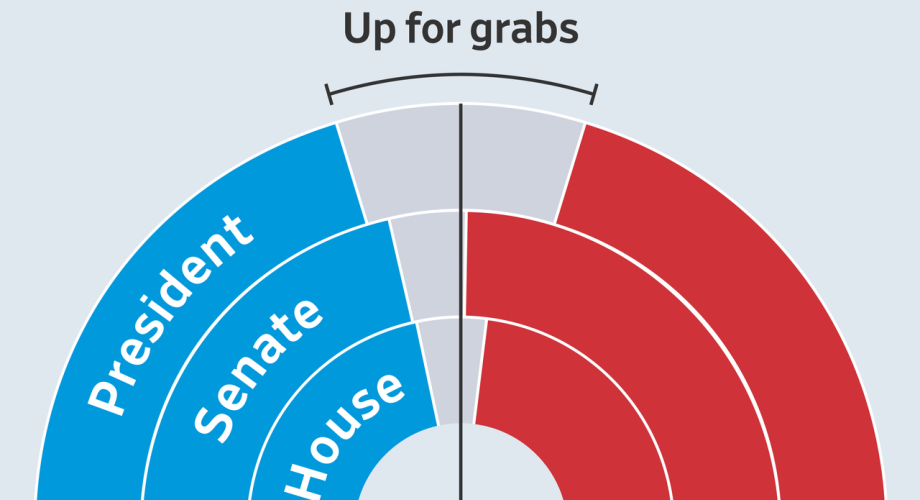2023 Election Results
As a rule of thumb, off-year election results aren't the best predictor of future elections. Thus it's not clear what, if anything, we definitively learned about the upcoming 2024 election based on the results from these 2023 midterms. However, we can conclude that the 2023 midterm results in select states served as a stark reminder to Republicans that it isn’t possible to always nationalize state elections successfully against an incumbent President’s political party. Despite President Biden’s approval rating hovering around 41% on November 7, Democrats boosted turnout by highlighting abortion issues, plus messaged effectively around niche state and local issues to propel themselves to victory in some marquee races.
Democratic Gov. Andy Beshear (D) won reelection in Kentucky by defeating Trump-endorsed candidate Daniel Cameron (R) 52.5% to 47.4%. However, every other statewide race in Kentucky went to Republicans. In Ohio, a state that has increasingly trended Republican in recent election cycles, voters approved a constitutional amendment protecting the right to an abortion. In Pennsylvania, Democrats won a key Supreme Court race and in Mississippi, Brandon Presley (D) came within five percentage points of defeating incumbent Gov. Tate Reeves (R). In the sole federal special election of the night in Rhode Island’s first congressional district, former Biden administration official Gabe Amo (D) defeated veteran Gerry Leonard (R) 65%-35%.
In Virginia, Democrats actively leaned in on abortion messaging, which helped them flip the House of Delegates and maintain their control of the state Senate. While Republicans overperformed compared to some previous off-year elections, their turnout didn’t match the 2019 levels that swept Republican Gov. Glenn Youngkin (R) into office. Despite this setback, Republicans managed to win seven districts in Viriginia’s House where the congressional Democratic candidate won in 2022. Virginia will be a focus for both parties in this upcoming 2024 election, as it is home to two competitive bellwether congressional districts in VA-2 and VA-7, represented by Reps. Jen Kiggans (R-Va.-2) and Abigail Spanberger (D-Va.-7), respectively.
Congressional Retirements
In the U.S. House and Senate, a string of retirement announcements by lawmakers is having a reverberating effect in the battle for control of each chamber in the 2024 election cycle. To date, a total of 38 members of Congress have announced their intention to retire at the end of their term or pursue a higher office, and this does not include those who plan to quit early or have already resigned. In November alone, 13 members of the House and Senate announced they won’t run for reelection next year, the most in a single month since this issue started being tracked in 2011. We can only expect this number will grow post-Thanksgiving and into December.
In the Senate, Democrats are already facing a daunting map and need to reelect vulnerable incumbents in red and swing states to keep control of the chamber. Democratic control of the Senate was made exponentially more challenging after Sen. Joe Manchin (D-W.V.) announced his retirement at the end of his term. Sen. Manchin was widely seen as the only one who could keep West Virginia’s Senate seat in Democratic hands. In addition to Manchin, four other Democratic Senators have declared they are no longer running, while Republican Sen. Mitt Romney (R-Utah) announced that he would not seek reelection and Sen. Mike Braun (R-Ind.) has declared that he will instead run to become Indiana’s next governor.
In the House, retirements and members seeking other offices have put Democrats on the defensive. Apart from Rep. George Santos (R-N.Y.-3), who is already facing an imminent expulsion vote, all of the House GOP departures are from reliably red districts. Several districts being left by Democrats are competitive, including Virginia’s 7th congressional district where Rep. Spanberger announced that she would forgo reelection to instead be a Democratic candidate for governor in Virginia. Nine Democratic House members are leaving to run for the Senate. Rep. Dean Phillips (D-Minn.-3) announced recently that he would not be seeking reelection after he launched a long-shot bid for the presidency.
The NAA Government Affairs team is monitoring all these developments in key races across the country. In future NAAPAC Insider editions, we will explore in greater depth some of these key battleground races that could decide control of both chambers. NAAPAC is continuing to support our apartment industry allies in both parties. For questions about key races in your area and NAAPAC’s involvement, please contact Jim Wilson or Rob Johnson.
